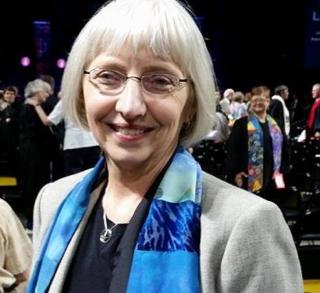The Learning Lab of Life
By Patricia Infante

Patricia Infante
Innovation! Adaptation!! Experimentation!!! We live in a time of incredible change and shifting paradigms. Technology continues to zoom along at a pace that is breathtaking and society seems to be chomping at the bit for the next big thing. At the same time, some of the things we thought we could count on to stay the same have fallen away or been eroded all across our society and our planet. Human rights, glacial ice, democratic principles and civility are under attack and there are moments when I wonder if the universe is testing humanity to find out if we are really up to the task of living meaningful lives.
Then I remember, nothing in this life is settled or guaranteed. We all exist in a constant state of adaptation and experimentation with the inner and the outer world. Who am I today? Who and what matter to me today? What will I do for the first or last time today and how will I be changed by it? Imagine a congregation of 50, 100, or 500 people who are changing every minute, every second – how are we adapting to this unyielding state of flux? By their very nature, congregations are organic, evolving systems and yet even as the people within change and adapt to new ideas, new understandings of self and our companions on the journey, we expect the institution to remain static and to continue to be the same place we have always known. If we are changing, shouldn’t our congregations do the same?
Some congregations adapt quickly and confidently to new ideas – always seeking the latest “best practice.” For those not leading, it can seem dizzying and arbitrary. Some congregations move more slowly, changing only when a crisis is upon them and there is no other choice. Again, for those not in leadership, that may feel frustrating and lead to a sense of “stuckness.” So who wins the race – the tortoise or the hare? Guess what, it isn’t a race and what works in one place may be a complete failure in another.
Congregations struggle in myriad ways and I often get asked the question, “what’s the best practice for this problem I’m facing?” Certainly there are “common” practices often shared by staff or between leaders but the “best” practice for your congregation is the one that is manageable and sustainable for you at this time in your history. If someone tries to tell you there is a “right” way to do church, push back. Experiment with new ways of worshipping, new models for engaging with families, new styles of music, or new ways of gathering in community. Nothing will last forever so why not become a laboratory for exploration and adaption? Despite Yoda’s best advice, it is okay to try. The anxiety of making the budget or fixing the roof won’t disappear but maybe we will feel better about the work when we unleash our creative spirit in the pursuit of joy and spiritual growth.
All of us are living in a lab – we are part of the grand experiment called life. We can’t know what lies before us and how each of our days will unfold but if we make space for community, joy and creativity, we have all we need to make it to tomorrow